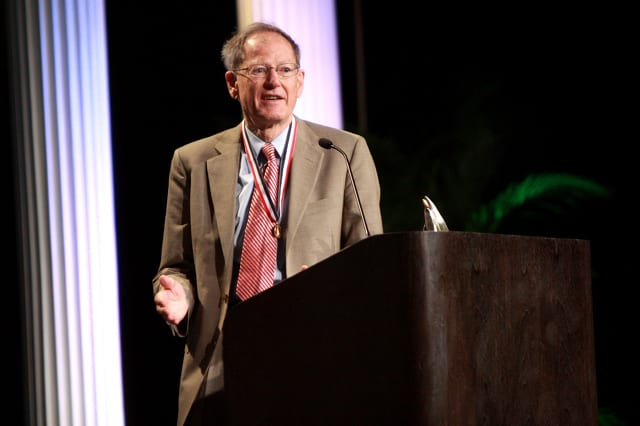Not long ago in a conversation about climate change, the notion was made that it was “settled science.” Those of my readers who are serious scientists realize that term is itself an oxymoron. Science is never settled and is always seeking a better understanding (better theorem) for the events in the universe. As our theorems are refined they help us predict the future with greater certainty.
Therein lies the value of science. We can reduce the uncertainty of the future by rigorously studying, theorizing and applying the mechanisms of reality. There is a story that at the turn of the last century (that’s 1900 I’m talking about) there was a suggestion made to close the patent office, since everything worth discovering was known. Then – surprise! Along came quantum mechanics.
It is the same with the economy and the way we understand and theorize about how it works. We all – economists, bankers, politicians, legislators, bureaucrats, commentators, investors, authors, and general participants – have an idea about how our economy works and we make decisions based on our understanding. Since the last recession in 2008 we have been working within our understanding to return to full employment, more rapid economic growth and a path forward to a sustainable economy and government.
Yet we have been coming up short with the current prescription for what ails the economy. Growth of our GDP has been subpar for many years and the best efforts of our central bankers, and indeed the central bankers from all the major economies, have been insufficient to cure our sluggish economic growth. Some are calling for the fiscal policies of lower taxes and regulations while others think we need higher taxes and more government spending and regulation. The stock market has been performing pretty well, but that performance has not trickled down to the broad based economy.
Into this conundrum comes George Gilder’s latest book, entitled The Scandal of Money, Why Wall Street Recovers but the Economy Never Does. In it, Gilder offers a new understanding of the economy via a new theory of human economic progress based on information science and the quest of humanity to pursue better understanding of how reality actually works. Gilder provides a new theory of how economic progress is created and the policies our government should pursue to realize economic growth north of 3 percent on a sustainable basis. Gilder also points to conversations offered by Ray Kurzweil in The Singularity is Near.
Simply put, both authors agree that we seemingly get smarter over time, allowing us to become more effective and efficient (measured as productivity) and thereby create a wealthier population. We don’t just make more stuff; we make our lives easier by implementing new processes and behaviors found to be effective by being in line with our current reality. We can do more things, and better things, more effectively. The application of an improved understanding of reality allows us many more possibilities. Need I point out the benefits of space exploration, medical and biotechnical developments (curing diseases like hepatitis C for example), electronics and software, better building materials and techniques and most of all falling costs of all these developments over time? This is what truly makes humanity wealthier over time.
To be sure, we have only been going at these efforts for the past several hundred years. Before the Industrial Revolution (and agricultural revolution) all progress was at a standstill. Every generation was as poor as the preceding generation. This is no longer true as we all expect that our children and grandchildren will be better off than we are. They will live longer, healthier lives with material conveniences and advantages that were impossible until quite recently.
So I recommend that my readers investigate Gilder’s notions as well as Kurzweil’s. We need implementation of a better theory on improving our economy rather than just doing more of the same (zero interest rates and monetary stimulus, for example). A new prescription for what ails the economy could be at hand. I think you might even gain a better idea of how to manage your investment portfolio as reward for your efforts.



